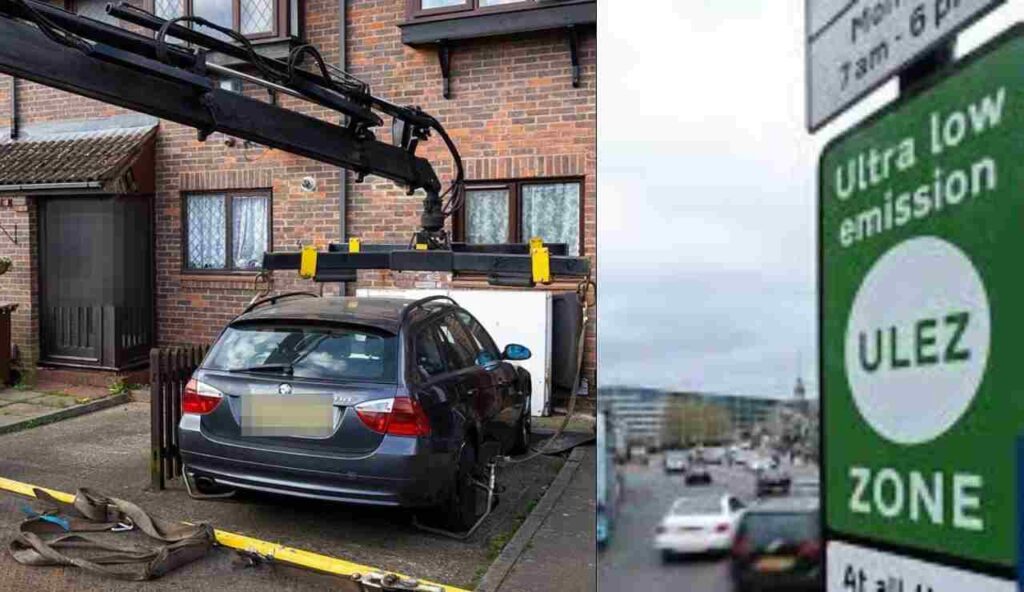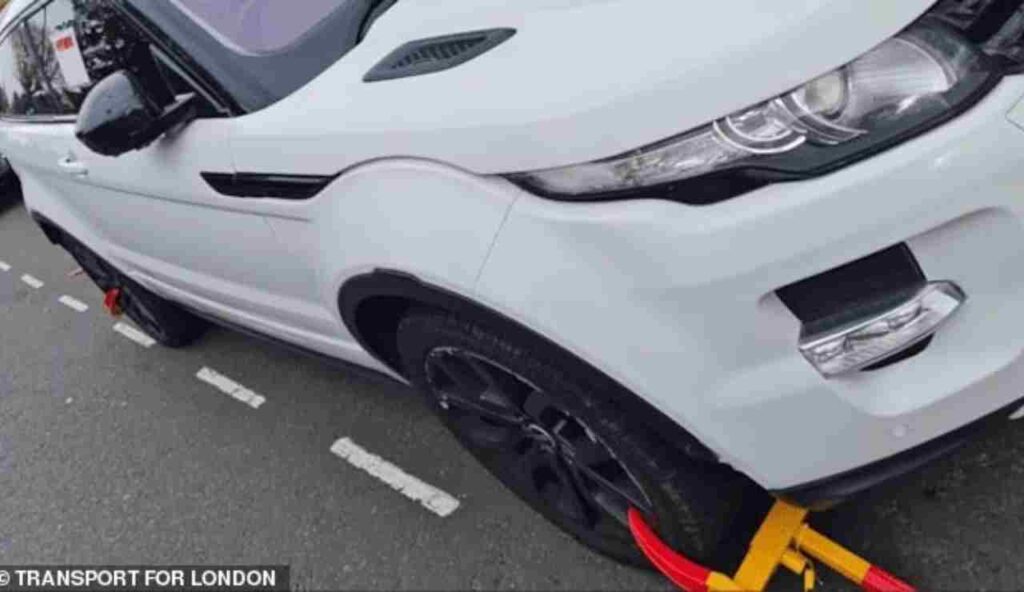Transport for London has intensified its pursuit of drivers refusing to pay Ultra Low Emission Zone fines, with bailiffs now seizing vehicles from properties across the capital. Recent images show enforcement agents removing a BMW from a driveway, highlighting the aggressive tactics being deployed against non-compliant motorists.
Approximately 78,000 car owners, representing three percent of all vehicles in the zone, continue to resist paying ULEZ penalties. TfL has already collected over £70 million in fines and shows no signs of relenting in its enforcement efforts.

The transport authority recently announced it is ramping up operations to track down what it describes as persistent evaders. In one case this week, enforcement agents seized a vehicle linked to 118 outstanding warrants. TfL warned drivers: “Don’t wait for our agents to knock on your door.”
The organization claims 94 percent of outstanding ULEZ debt comes from persistent evaders, those with at least four unpaid fines. TfL has suggested there may be connections between deliberate evasion and other criminal activities, a claim that has sparked controversy among critics.
When drivers fail to pay, TfL initiates a comprehensive enforcement process backed by court-issued warrants. Enforcement agents can visit homes to recover money owed, seize belongings, clamp vehicles, and sell them at auction to satisfy debts. Between January and June this year alone, more than 530 vehicles were seized, with over 350 sold at auction, raising more than £285,000.
TfL has also stated it can pursue increasingly severe measures, including forcing individuals into bankruptcy and potentially deducting fines directly from salaries through employers before money reaches bank accounts. The authority shares intelligence with the Department for Transport and the Driver and Vehicle Licensing Agency in its enforcement operations.

Critics have voiced strong opposition to these tactics. Claire Dyer, a mother of five from Biggin Hill in Bromley, called it “a disgrace,” arguing that ULEZ functions as a tax on poorer members of society and a revenue-generating scheme for TfL. Many opponents highlight that replacing non-compliant vehicles requires financial resources not readily available to everyone.
The ULEZ expansion, pushed through by Mayor Sadiq Khan despite widespread controversy, faced criticism for its rapid rollout. Even before becoming Prime Minister, Sir Keir Starmer suggested Khan should reflect on the scheme and explore ways to make it easier for people to comply.
Despite the backlash, TfL defends the program as essential for public health. The zone aims to reduce nitrogen dioxide levels, which worsen asthma and increase lung cancer risk. An independently verified study commissioned by the Greater London Authority found NO2 levels in outer London were 4.8 percent lower than expected without the expansion, with overall London levels decreasing by 27 percent.
TfL’s Chief Customer and Strategy Officer, Alex Williams, emphasized that 97 percent of vehicles driving in London now meet ULEZ standards. He urged drivers facing financial difficulties to engage with TfL staff rather than ignore penalties, noting that the organization can consider individual circumstances and work with people struggling to pay.






